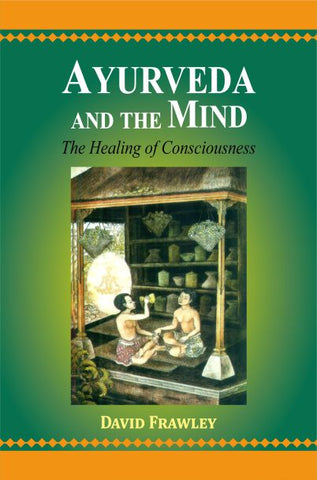Your cart is empty now.
Vyutpattivada is the single most important work on the analysis of sentence and its meaning which is traditionally known as 'verbal cognition' (Sabdabodha), Vyutpattivada elucidates the problems connected with the verbal cognition on a scientific epistemological basis and presents the view points of all the three different epistemologists of India namely grammarians, ritualists and logicians. Due to its clear view points and critical approach of the sabdabodha theories, it has gained ultimate respect of scholars and is a landmark in the field of the history of Indian epistemology. It is a 'must' for both the students and scholars of Nyaya, Vyakarana and Mimamsa.
Vyutpattivada presents rich and sophisticated discussions over different parts of speech such as karakas (i e. 'kartr,' 'karma,' 'karana? 'sampradana, 'apadana, 'adhikarana' etc) non-karakas (i e. 'sesa' 'karmapravacaniya etc.), (verbal base-meanings) 'tak ararthas: (meanings of conjugational ending). 'taddhitarthas (meanings of secondary derivations) etc. Also, Vyutpattivada presents the analysis of various types of syntacticosemantical relations (samsargas) that are comprehended between various parts of speech.
Navyanyaya contains a wealth of information regarding the epistemology, logic and linguistics. However, very few books on the subject have been brought into any of the modern languages. Vyutpattivada meets this long felt need to a great extent quite successfully.
Preface
Logic, epistemology and incidentally mysticism constituted the subject matter of Nyaya system of philosophy. A large section of the Nyaya literature was devoted to the analysis of what constitutes verbal testimony and bow verbal cognition (Sabdabodha) is arrived at. However, after the advent of Navyanyaya, epistemology took shape as an independent branch of science and as a consequence systematic study of sentence and its meaning was undertaken.
Besides Nyaya, grammar (vyakrana) and ritualism (mimansa) also dealt with the analysis of sentence and its meaning. Though the formative aspect and ritual interpretation constitute the primary goal of grammar and ritualism respectively, many individual thinkers in both the systems showed tremendous interest in the analysis of sentence and its meaning. They have developed parallel theories of verbal cognition which were at variance with the logician's theory of verbal cognition. Thus, these three systems together present a rich and sophisticated analysis of sentence and its meaning.
While Nagesa's Laghumanjuso and Kaundbhattas Bhuasnasara present grammarians theories of sentence meaning, Khandadeva's Bhattarahasya and Bhattacintamani give a systematic account of the ritualists theories of the same.
In Nyaya , however, number of scholars, each representing a particular system of thought, composed-various works on verbal cognition. Among them, Jgadisa's Sabdasakti-prakasika, Gadadhara's Vyutpattivtida and Saktivada, Gokulanatha's Padavakyaratnakara and Giridhara's Vibhaktyarthanimaya are few important works.
Gadadhara and other epistemologists have used the expression sabdabodha 'verbal cognition'. The expression literally means the cognition or understanding resulting from the use of words i.e. sentence. However, the expression actually stands for the understanding of syntactico-semantical relationship (samsarga) envisaged by these scholars between various. referents (artha) of a sentence. Epistemologists of India analysed each word as referring to a particular meaning, which we shall call referent here, and then postulated a particular syntactico-semantical relation through which such a referent can be related to another referent. According to them, understanding of sentence-meaning or verbal import means, therefore. understanding of the various syntactico-semantical relationships involved between the different referents of a given sentence. Thus, the expression 'verbal cognition' (sabdabodha) should be understood, in this context, as the understanding of the syntactico-semantical relationships; and not merely as the cognition of individual unrelated referents since the same, unless related together, do not convey any coherent sense.
Vyutpattivada, the work presently being translated into English, is the most important work in the field of epistemology in general and verbal cognition in particular. Gadadhara, in this work, gives a detailed account of all the karakas, non-karakas and their relations with the meaning of the verbal root and also that of the verbal endings.
In doing so, he systematically represents the views of the Pracyas, Navyas, and if necessary also that of grammarians and ritualists. However, Gadadhara seems to favour Navyas view point in most cases. For instance, in the case of accusative meaning, he clearly supports the Navya views that the superstratumness (iidheyata) be accepted as the accusative meaning and rejects both the pracyas and grammarians views that an effect like contact is the accusative meaning or that the abode (asraya) is the accusative-meaning. Nevertheless, when he finds that the grammarians or ritualists view is justified, be does not hesitate to support their view. For instance, while discussing the meaning of verbal roots, he clearly supports the grammarians view that roots should be accepted as having two 'Separate denotations, one in the effect like the contact and the other in the action like going. Thus, it can be stated that Gadadhara, while analysing the different parts of speech and its meaning, adopted an impartial and open attitude towards the theories of different epistemological schools.
The present volume contains the translation of the first two karakos (chapters) of the Vyutpattivada which forms approximately half of the entire work. The translation is based on the edition of Pt, Hariraj etc., Nirnaysagar, Bombay. 1911. It was aimed at first to publish the entire translation of the work in one single volume. However, owing to the size and magnitude of the work, it is being brought out in two separate volumes.
As noted earliar, the subject matter of the Vyutpattivada is too specialized; and therefore, the translation becomes highly technical in various places. For instance, the phrase '(fire), which is perceived to have the objectness, conditions the state of having a reference to the objects of knowledge' (visayatapannasya visayitanirupakatvam) is explained as 'the conditioning of the fire is delimited by such a state of being the object of knowledge' (p. 234). Such renderings are obviously quite overwhelming. Thus, to facilitate the readers, I have provided an introduction in the beginning giving brief accounts of most of the important topics of the first two chapters of the Vyutpattivada. However, I am also planning to publish an independent book namely, 'Epistemology, logic and grammar in the Navya-nyaya analysis of sentence meaning' (with special reference to Vyutpattivada) with a view to helpping the students of ' Nyaya in general and Vyutpattivada in particular. I hope, both the introduction in this volume and also the forth coming book 'Epistemology....’ together would provide adequate help to the leaders in understanding the subject matter to some extent.
I would like to express my sincere gratitude to my teachers: Dr. N.S. Ramanujatatacharya, Vice· chancellor, K.S. Vidyapeetham, Tirupati, Pandit T.S.S. Shastri, Deccan College, Pune, Vidwan Sri Arcakavenkannacbarya and Vidwan Sri Ramabhadracharya retired Professors, Sanskrit College, Mysore who have all taught me Nyaya, I am equally indebted to Prof. J.F. Stall. and Professor R.P. Goldman, both University of California Berkeley, Barkeley, Professor S.D. Joshi, General Editor Sanskrit Dictionary, Deccan College, Pune, and Professor N.M. Sen, Deccan College, Pune, for their guidance at various levels and also for their useful suggestions and corrections. If I have been able to convey the intricacies of epistemology, logic and gammar, present in the Vyutpattivada, the credit goes entirely to my teachers and also to my guides. However, any unintelligibility that my he traced in places of the translation, is due to my own inability in rendering.
Finally I would like to thank Mr. Shyamlal of Eastern book linkers for bringing out this volume nicely and Dr. Shiv Kumar of CASS, Pune for moral support.
Introduction
History
Among the six traditional systems of Indian philosophy. two are mainly concerned with epistemotogy and thereby with the analysis of sentence and its meaning: they are Logic Nyaya) and Ritualism (Mimansa). Another system that has greatly contributed to the development of linguistic theories in India is Grammar ivyakarana), These three systems combined together, present a rich and sophisticated analysis of sentence meaning comparable to those of the modern philosophy of language.
As early as in the 2nd century A.D. Gautama in his Nyayasutras defines verbal testimony (sabda) as the instruction of a reliable person (aptopadesa). As regards the referent of a word (padartha), the logicians hold that a word refers to a particular individual (vyakti), an image or form (akrti) and to a universal (jati); whereas the Sankhyas, the Jains and Mimansakas bold respectively that a word refers only to a particular individual, an image or a universal.
Logicians of earliar school or Pracyas such as Jayanta and Udayana entered into great controversies with Buddhist logicians on the topics of theism, epistemology and logic. During the period of the ninth and tenth centuries, the Nyaya-Buddhist conflict reached its climax. As a result of this controversy, the realism of Nyaya was threatened by the idealism of the Buddhists. In support of their philosophy of realism, the former developed logic and epistemology.
The most significant event in the history of the development of epistemology in India, is the rise of New school of logic or Navya Nyaya, The transition from early logic to new logic was influenced by controversies with other systems mainly Buddhists. However, when the new logic reached its peak of development, the Buddhist logicians had almost disappeared from the Indian scene. Thus, the opponents of the new logic were mainly the grammarians, the ritualists, and the Vedantins.
Grammarians occupy a very significant position in the field of epistemology in India. They consider veda and agama as the only means of understanding the ultimate reality and hence betray a very keen interest in the analysis of word and meaning. In ancient and medieval times, they propounded many a theories about the nature of words and their meaning. Bhartrhari postulates the theory of sphoia or sound essence and explains that when a particular word is utterred, its sphota is gradually unfolded by the sounds of word and that directly presents the meaning to the listener.
Panini analyses a word into a stem plus either a conjugational or declensional inflection and holds that both the stem and its inflection are meaningful. It should be noted here that the linguistic notions of Panini, especially his definitions of syntactico-semantic properties such as karaka relations and his analysis of word and meaning, form the very basis upon which the theories of verbal cognition of Indian epistemologists have developed.
Among the modern grammarians, Kaundabhatta and Nagesa have taken up, in great detail, the problems of the philosophy of language and established the theory of verbal cognition wherein the rootmeaning is the chief or principal element.
The system of Mimansa primarily deals with the investigation of dharma. However, this system also bears another significant title, namely vakyasiistra or science of epistemology and has made very important contributions to the development of the theory of word and meaning.
The ritualists have systematized the Vedas from the view point of epistemology. They have classified the Vedas into such epistemological categories as injunction ividhi), negative statements tnisedhai, names (namadheya) explanatory passages tarthavada) etc. According to Kumarila and others, words refer to universals such as blueness and only indirectly indicate the individuals. And they hold that there exists an eternal relation between word and its meaning and the same is revealed naturally through the inherent power of words.
Among the modern ritualists, Khandadeva has systematically represented the ritualists position regarding the theory of verbal cognition and explained the efficient force or productive activity (bhavana) to be the central or principal element of the syntactico-semantical [relations. He has also given a detailed account of the positition of other epistemologists such as grammarians and logicians so that they can be compared with ritualists position on verbal cognition.
Author
Gadadbara, the author of Vyutpattivada, presently being translated in this volume, was the son of Jivacarya. He" as born in the district of Lakasmipasa, Borga, in Eastern Bengal. According to S.C. Vidyabhusana, Gadadhara was earliar than 1625 AD. The Saktivada, one of Gadadhara's works on the power of words, was commented upon by a Pupil of Jayarama who flourished in 1650. Also, it is evident that Gadadhara was familiar with Jagadisa's work, namely Sabda saktiprakasika which too deels with the same topic of epistemology. And Jagadrsa was born in about 1605 AD. Thus, the date of Gadadhara can be fixed at around the middle of the 17th century.
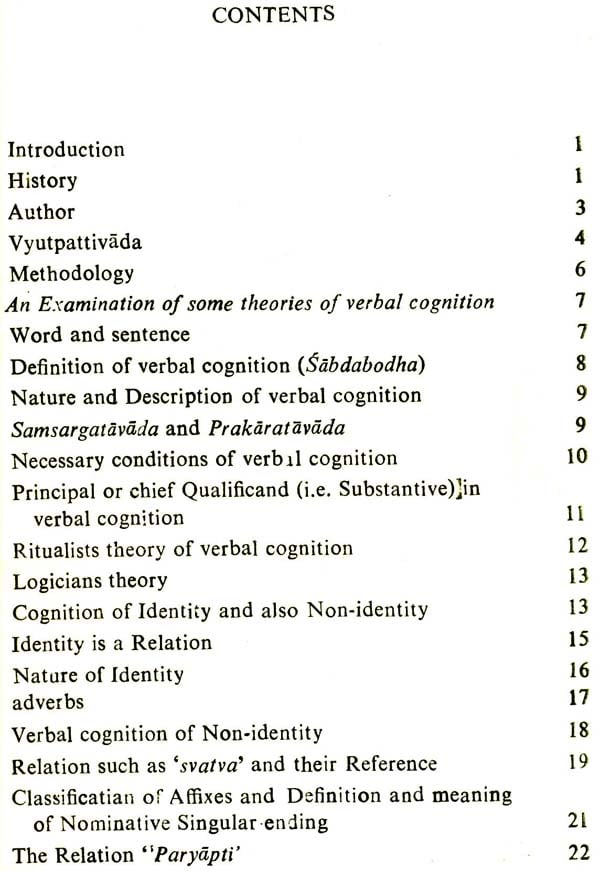

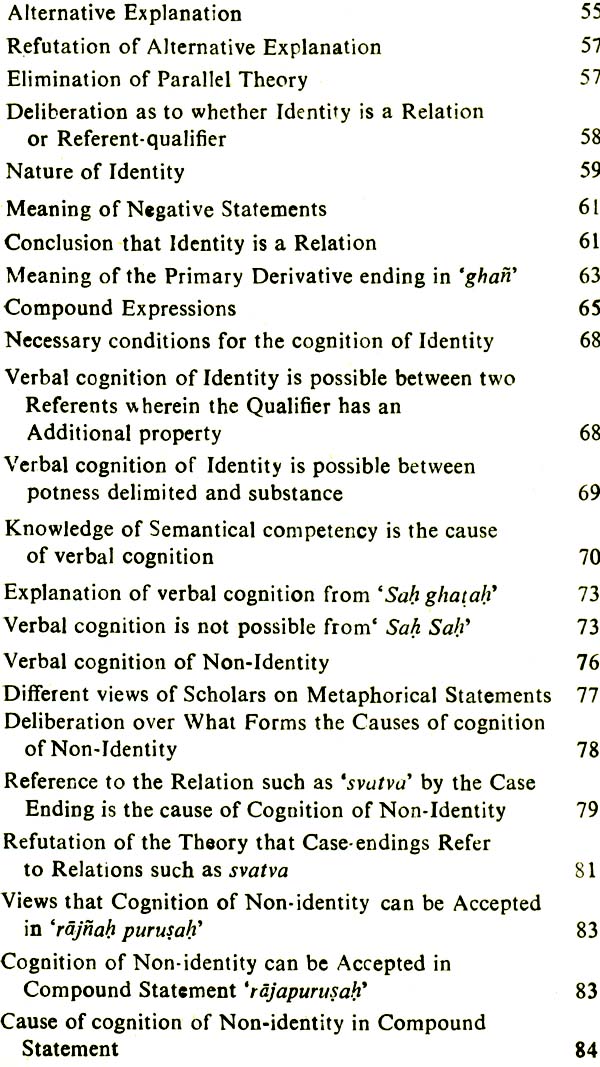
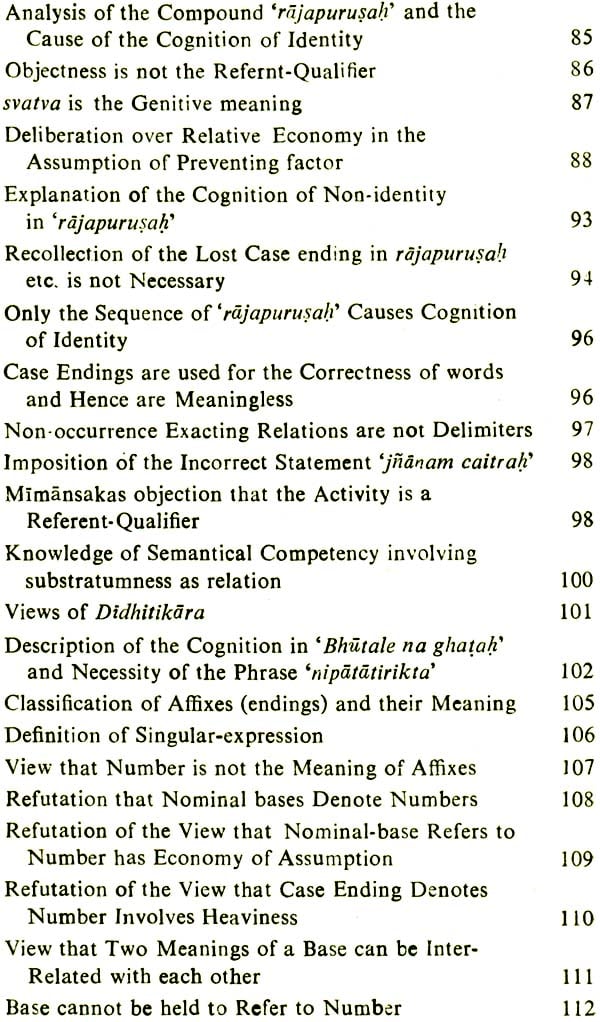
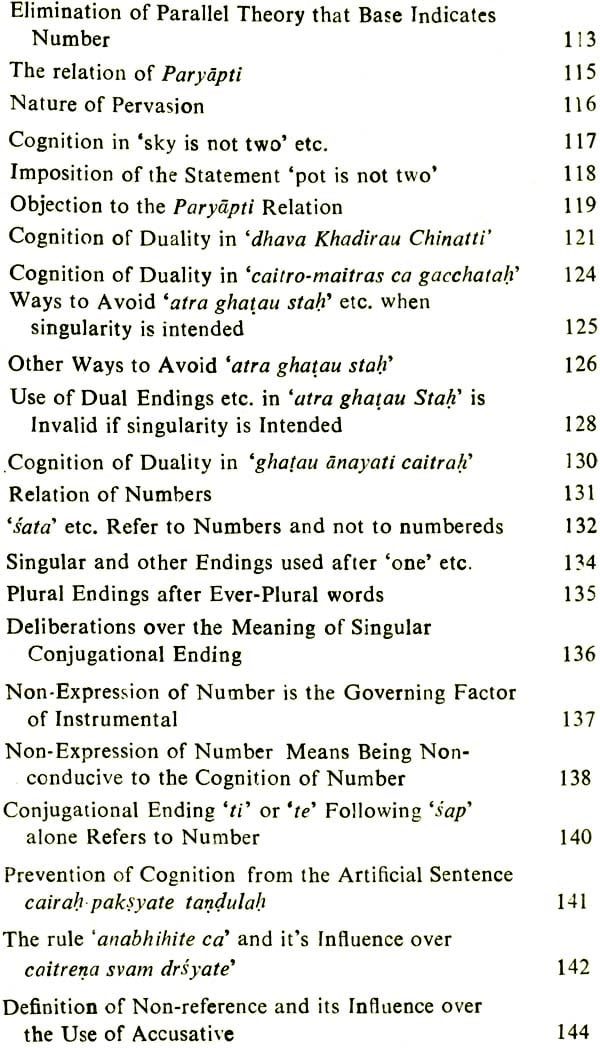
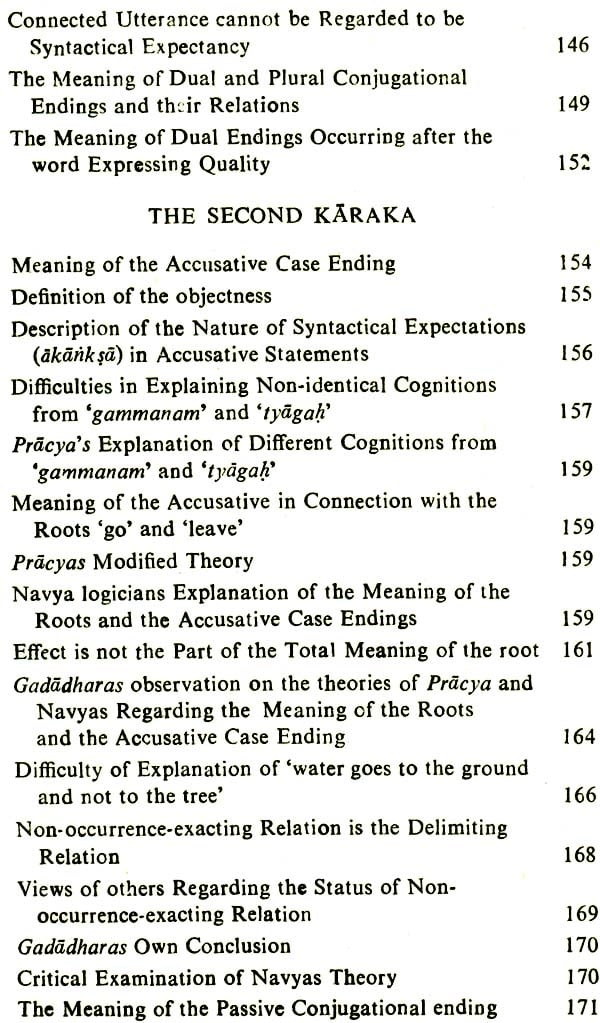
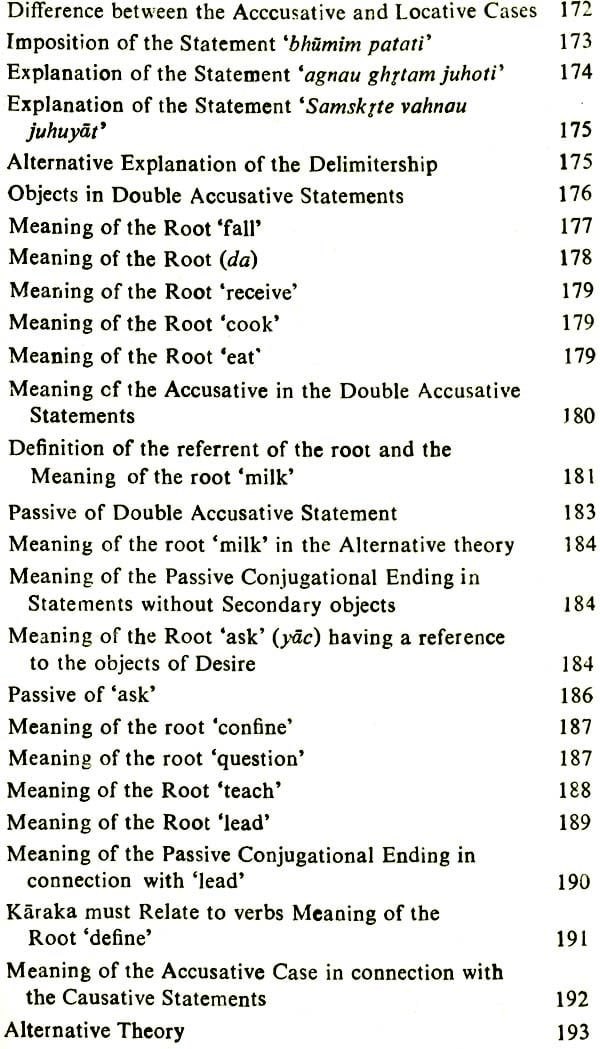
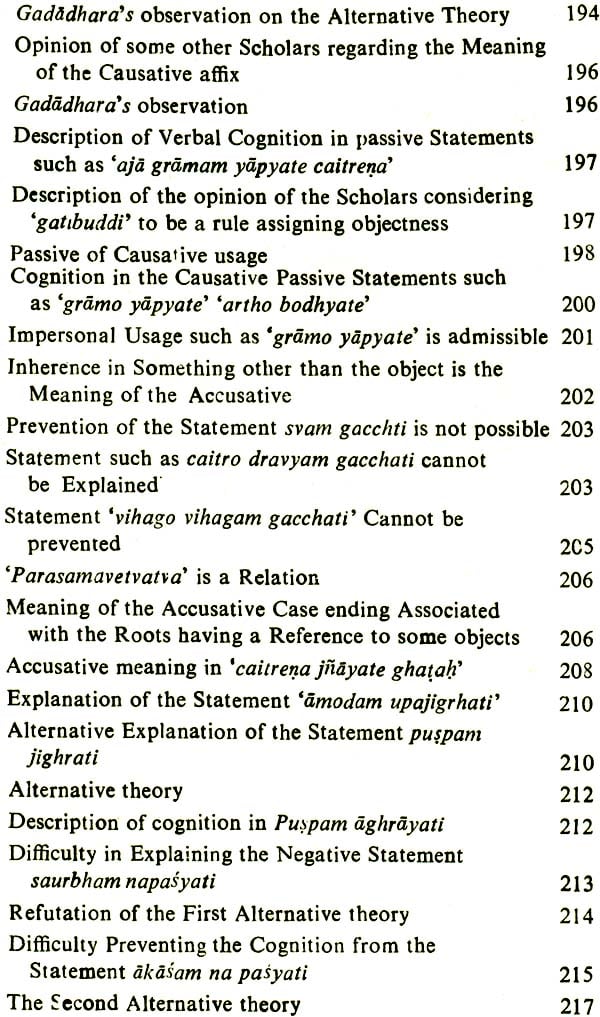

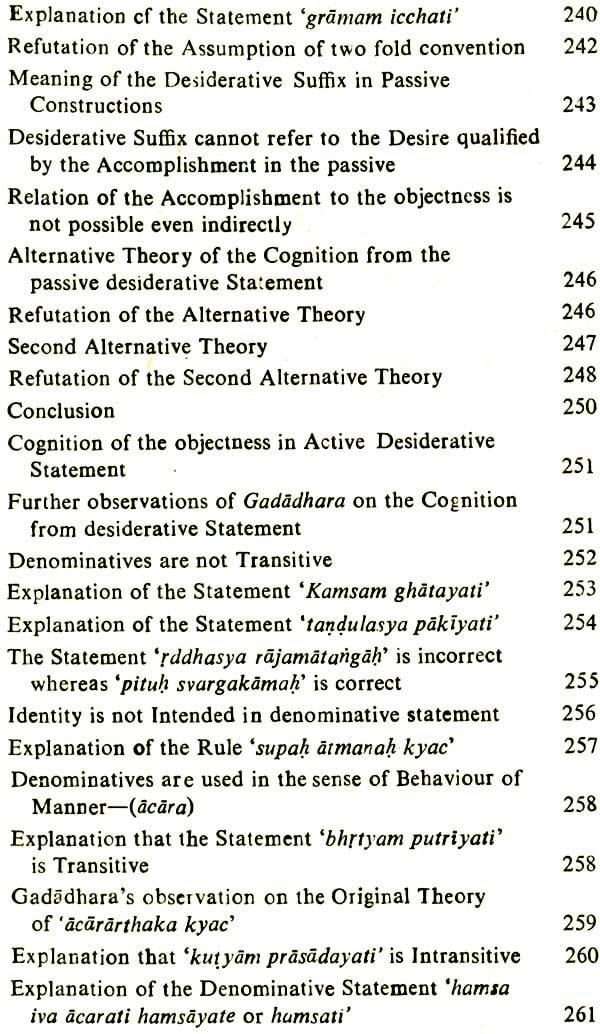
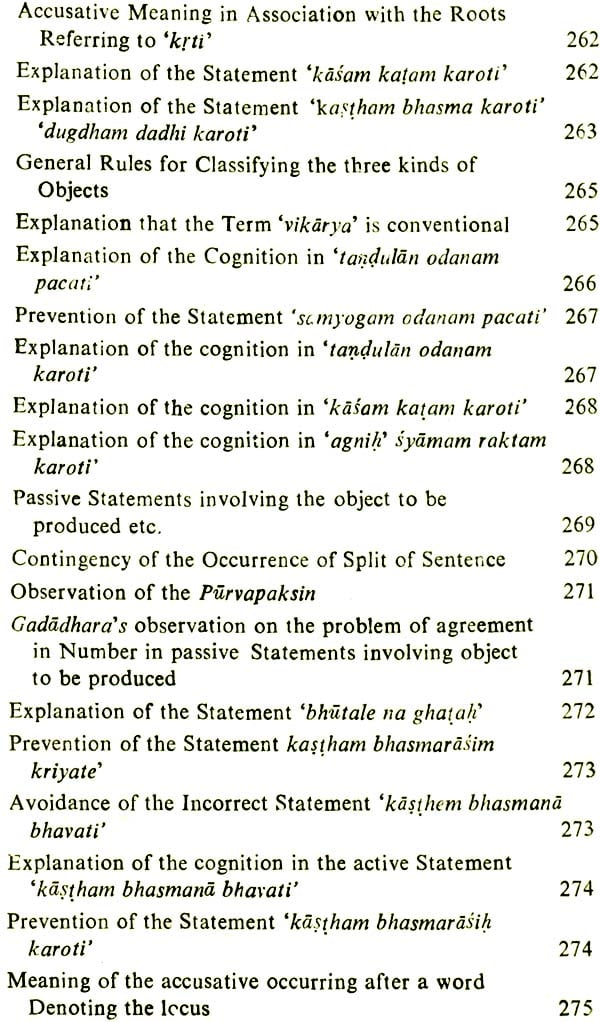

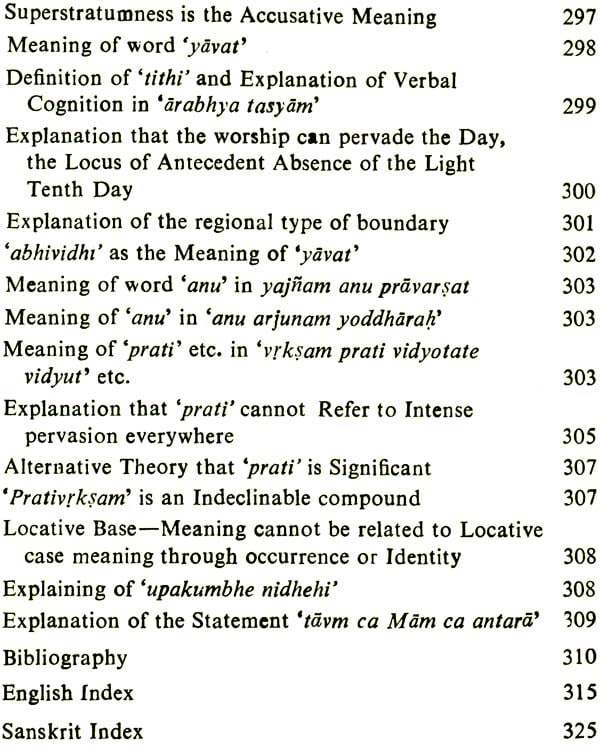
Delivery and Shipping Policy
- INTERNATIONAL SHIPPING
- Rs.1000-1100/kg
- ESTD. Delivery Time: 2-3 weeks (depending on location)
- Bubble Wrapped with Extra Padding
- NATIONAL SHIPPING
- NCR: Rs. 30/half kg
- Standard: Rs. 80/half kg
- Express shipments also available on Request
- ESTD. Delivery Time: Ranging from 1-4 days up to 7 business days (Depending on your choice of Delivery)
- TRACKING
- All orders; national or international, will be provided with a Tracking ID to check the status of their respective orders
- Depending on the Shipping Service, Tracking ID may be used on their respective tracking portals
Frequently Asked Questions (FAQs)
Domestic Shipping: 3-4 Days (after shipping)
International Shipping: 1-2 weeks (based on your location)
You will receive an email once your order has been shipped or you can email us if you didn't receive tracking details (info@mlbd.co.in)
Every book that we sell is the latest edition except all the rare books
Yes, we do provide free shipping, only on domestic orders (within India) above Rs.1500






